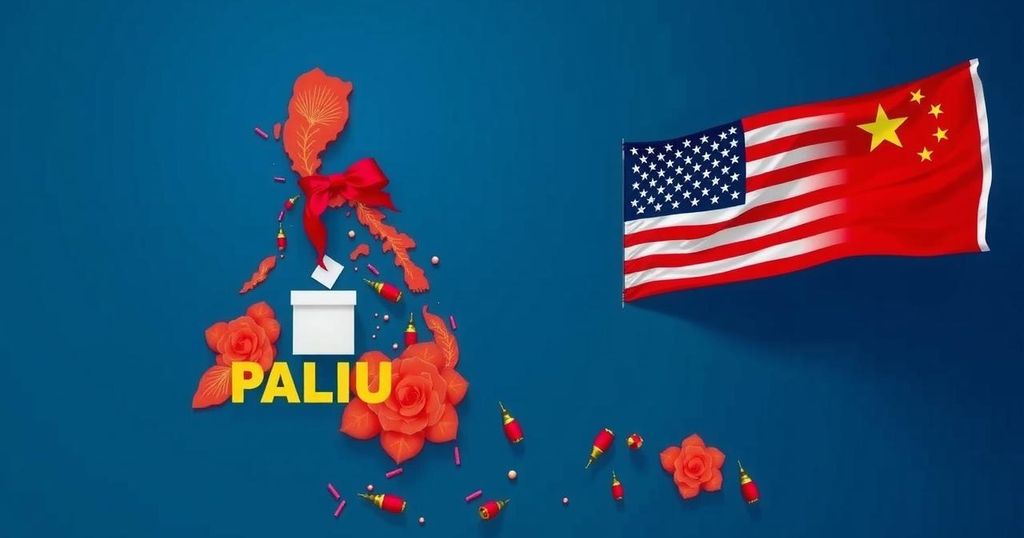On November 5, Palau will conduct elections featuring President Surangel Whipps Jr. and former President Tommy Esang Remengesau Jr. The elections are set against a backdrop of U.S.-China competition for influence in the Pacific. Voter concerns primarily revolve around economic issues, and candidates present contrasting approaches to foreign relations and national security.
On November 5, the Pacific nation of Palau will hold its elections, coinciding with significant political events in the United States. This election occurs within a broader context of geopolitical competition between the United States and China, particularly regarding influence in the Pacific region. The newly constructed US military runway in southern Palau underscores increased American military presence in response to rising concerns over Chinese expansionism. With a population of approximately 18,000, Palau remains one of the few nations that maintain formal diplomatic relations with Taiwan rather than China. The election features President Surangel Whipps Jr., a strong pro-U.S. candidate aspiring to economic reforms and strengthened security ties with Washington, confronting former President Tommy Esang Remengesau Jr., who has suggested a more collaborative approach with China on climate and economic issues. Remengesau previously led Palau for 16 years, during which he gained prominence for ambitious environmental policies, including the establishment of the world’s first shark sanctuary and a significant marine sanctuary. With a struggling economy and rising living costs as predominant voter concerns, candidates’ economic strategies will be critical. Notably, Palau imports the majority of its goods, totaling around $70 million annually, predominantly from the U.S., supported by a long-standing Compact of Free Association that provides critical economic and military assistance. While Whipps has utilized his business background to secure significant defense contracts, Remengesau has raised concerns about potential conflicts of interest. Additionally, the candidates’ contrasting views on foreign policy reflect deeper concerns regarding the influence of China. Remengesau emphasizes the importance of environmental security over military considerations, while Whipps maintains that a robust connection with the U.S. is vital for Palau’s sovereignty amid regional tensions. The outcome of this election may have implications for Palau’s foreign relations and economic strategies moving forward.
Palau, a small island nation in the Pacific, serves as a strategic focal point amid the growing rivalry between the United States and China. With its unique diplomatic ties to Taiwan and a significant military presence from the U.S., the upcoming elections reflect not only local governance issues but also broader geopolitical dynamics. The country’s history of U.S. administration until its independence in 1994 underlies its ongoing economic and military collaboration with the United States, while its relationship with China remains complex due to past diplomatic tensions and economic considerations.
The elections in Palau underscore the delicate balance of foreign relations the island nation navigates amid its economic challenges. As it heads to the polls, the candidates represent diverging philosophies on governance, economic strategy, and foreign policy, particularly concerning the competition between the United States and China. The decisions made at this juncture may shape both Palau’s immediate economic realities and its long-term diplomatic affiliations.
Original Source: www.theguardian.com






